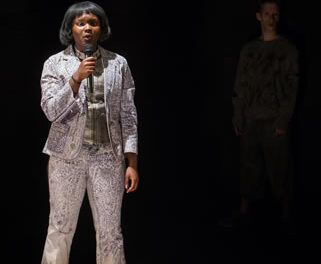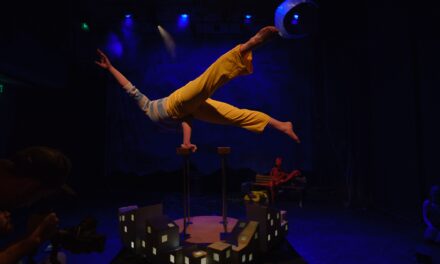Some people claim that music reviews aren’t important. Tell that to Daniel Hege, under scrutiny as a possible replacement for Gerhardt Zimmermann. At the Raleigh Classical Series concerts of Friday and Saturday November 16 and 17, the NC Symphony trotted out Hege as the first in what we expect will be a common sight for the next months. Hege is currently in his third season as Music Director of the Syracuse Symphony.
The soloist of the evening was violinist Cory Cerovsek, on his third visit to Raleigh and the second with the Symphony. Why does the North Carolina Symphony engage first-rate soloists only to have them play third-rate music? Cerovsek, an excellent musician with a very large repertoire, performed Henri Wieniawski’s Concerto No.2 in d, Op.22. What a shame to waste it on such nineteenth century drivel! His performance was stunning, but we heard later that he recently performed the Alban Berg Concerto and all we could think of was “we wish…”. Lacking cutsy pyrotechnics so the violinist can show off his technique, the Berg Concerto – difficult in a more profound sense – is a far better showpiece for plain old musicianship. Cerovsek came as close as possible in turning the Wieniawski into real music, but his efforts didn’t manage to turn this sow’s ear into a silk purse.
The concert opened with the overture to Wagner’s The Flying Dutchman, one of classical music’s brassier moments, and the orchestra gave it the full brass treatment. The rushing strings, depicting the stormy sea and wind were beautifully played, and could be heard even over the brass. Hege was good at eliciting and balancing these fortissimo passages from the orchestra players, but the quieter sections rarely went below mezzoforte. The lack of contrast cancelled out some of the emotional contrast between the themes of the doomed sailor and the gentle but intense theme of Senta, the loving woman who finally brings him salvation and rest.
The problem of dynamic control became more pronounced in the second half of the program, which featured Robert Schumann’s Symphony No.2 in C, Op.61. The Adagio espressivo third movement requires a subtly architectonic handling of dynamics to build up the tension in the reiterations of the movement’s single theme and prevent it from becoming statically repetitive. Hege’s directions lacked the necessary grand overview, making the movement sound over-long, which it isn’t. The NCSO’s woodwinds, which feature prominently in this movement, were outstanding in their balance and precision.
The NCSO’s musicians are a first-rate lot, and as such, do not require more than hints from the conductor during the performance. Hege’s conducting style tends to “sculpture” the orchestra with excessive gestures that are more appropriate to an inexperienced amateur ensemble. All in all, we think the NCSO search committee should be able to do better.
A surprising prelude to the Friday concert was held in the alcove of the right front corner of the Meymandi Concert hall lobby. Ten-year-old cellist Alan Toda-Ambaras, looking like Harry Potter (including the haircut and glasses), performed Bach’s C Major Suite for Cello Solo and three movements from the d minor Suite. A student of Symphony cellist Leonid Zilper, Alan’s intonation, technique and musicianship-and stage presence- were nothing short of amazing, and Zilper maintains that he will soon outgrow his teaching. Todas-Ambaras performed the G major Suite and the rest of the d minor Suite before Saturday’s concert.
Saturday morning Cerovsek held what Zimmermann coined as an “Informance” at Peace College’s Williamson Center for the Performing Arts, a combination informal discussion and impromptu performance. The artist gave an engaging description of his growing up as a child prodigy-he completed his doctoral course work in mathematics and music at Indiana University at age 18-his plans for the future and the problems of purchasing a new violin. He then regaled us with a seldom-heard Kreisler scherzo and two movements from Bach’s Sonata in g minor. As in the Wieniawski the night before, his intonation was impeccable. These “Informances” are a great way to meet and hear artists in a less formal setting. The next one is scheduled for Saturday, February 23 at 11 am in Meymandi Hall, with cellist Wendy Warner.












